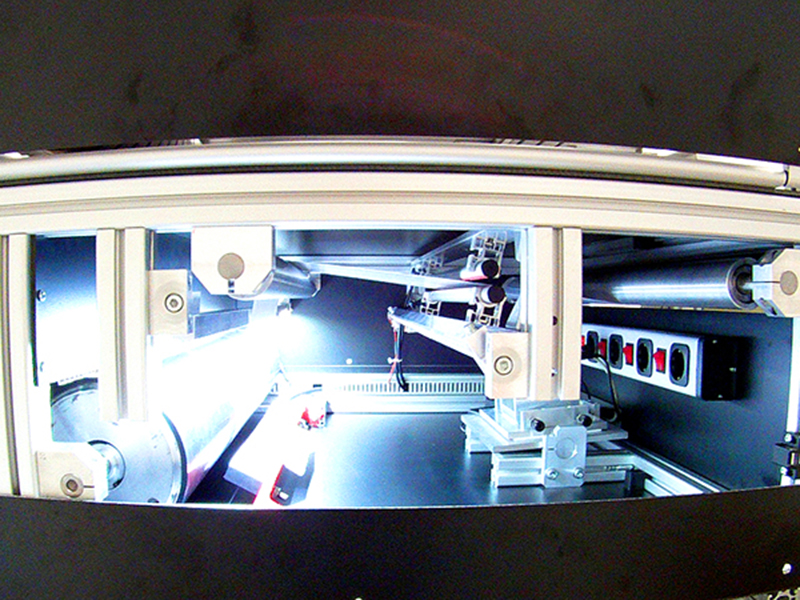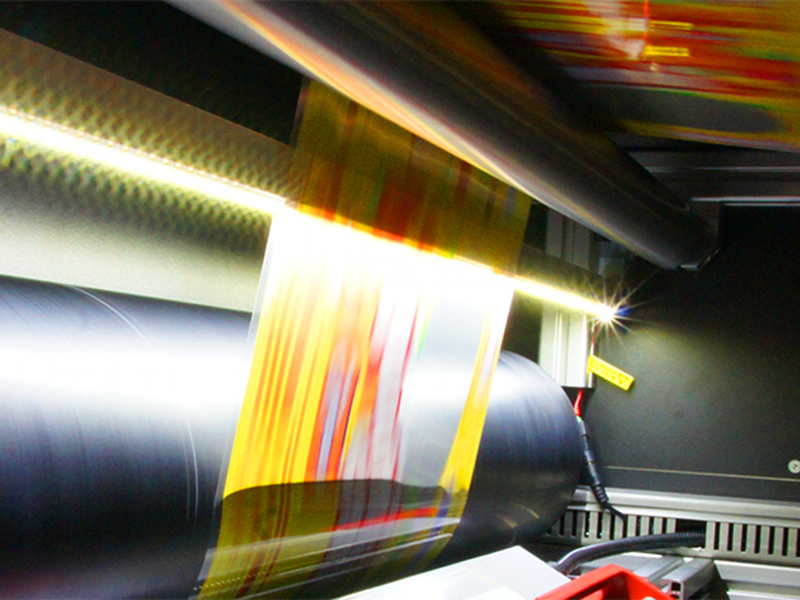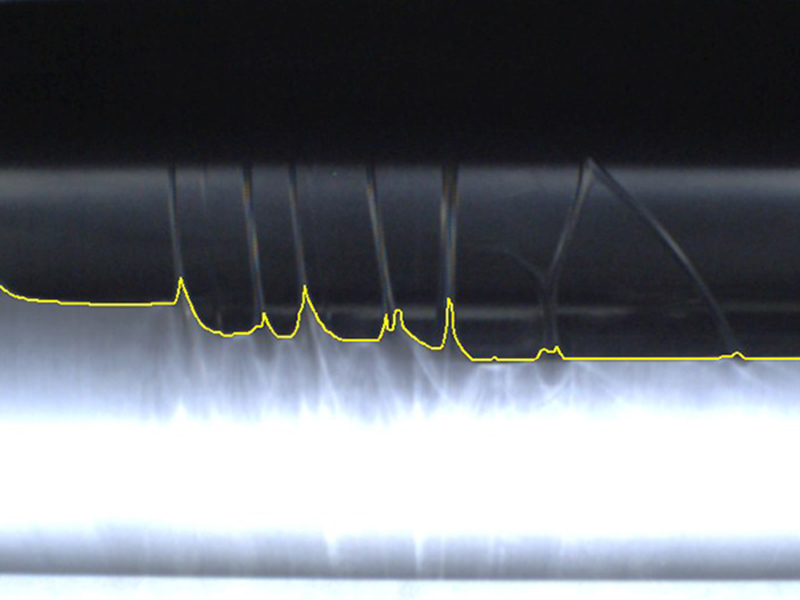
oWTP –optical Web-Tension-Profile– scanner
oWTP: optical Web-Tension-Profile scanner

The fingerprint of your web
The film is subjected to an adhesion force on a deflection roller for reproducible representation of a characteristic trailing edge, like the adhesion between the layers of film in a roll. The optical measurement is performed by defined illumination of the measurement area. The specially developed software for this appraises the geometric shape and position of the trailing edge and correlates this with the web tension profile. The shape and position of the trailing edge allow conclusions to be drawn about the web tension distribution in the web.
The integration of the oWTP scanner into our web transport test rig enables optical measurement of the web tension profile (e.g. determination of the properties of packaging materials under practically relevant processing conditions/speeds), simulation of detrimental influences, and analysis of the stress/load. The incorporation of additional components and the influence of machine components on the web transport can also be studied.
 Fraunhofer Institute for Process Engineering and Packaging IVV
Fraunhofer Institute for Process Engineering and Packaging IVV

